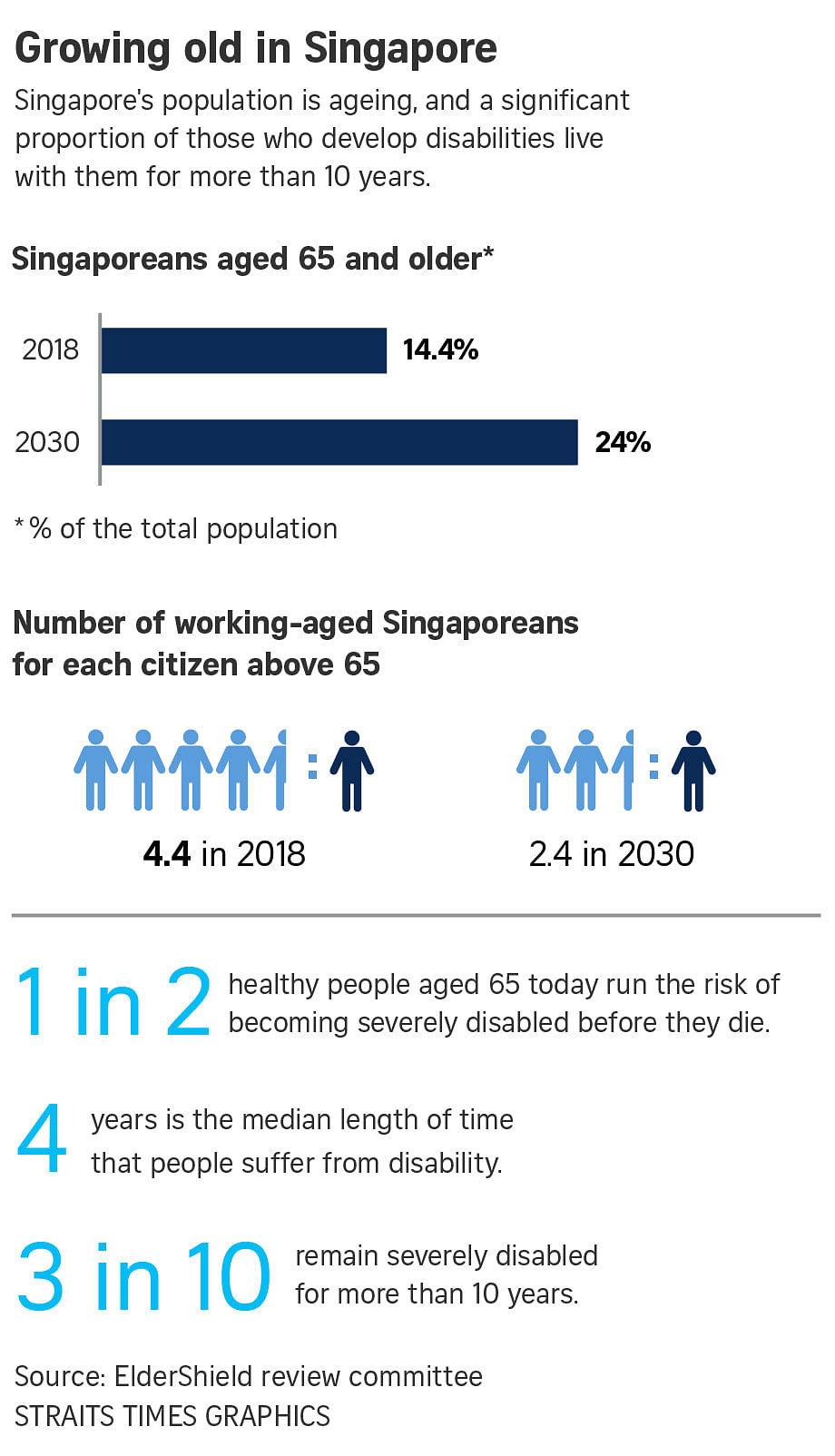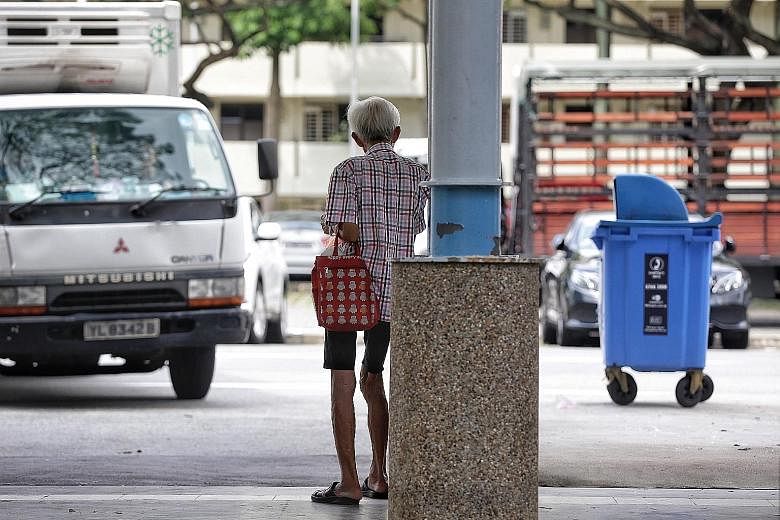The proposed changes to ElderShield - Singapore's disability insurance scheme - will strengthen the country's social safety net, said experts.
But at the same time, certain issues - such as the affordability of premiums and convincing people of the need to review the scheme - have to be ironed out before any changes are made, they added.
Yesterday, the ElderShield Review Committee released a set of four recommendations on how to improve the scheme. These include lowering the age at which people join the scheme and making it compulsory for everyone in the group to come on board - even those with pre-existing disabilities.
The 14-member committee also proposed that the Government take over as administrator and that its claims process be simplified.
It came up with these suggestions after 26 focus group discussions with more than 800 Singaporeans, including financial advisers, academics and community groups.
At these sessions, people also discussed whether ElderShield payouts should be increased or their duration extended.
Those on the scheme now get a maximum of $400 a month for six years at the most.
The Health Ministry said that between 2002 and the end of 2016, ElderShield paid out about $114 million in claims.

The committee has not yet made recommendations on these issues. It has also not said how the proposed changes could affect premium costs.
Dr Marissa Lee Medjeral-Mills, executive director of the Disabled People's Association, said that the Government should waive premiums for those who have severe pre-existing disabilities.
They are often unable to secure employment, "and those that do are often not paid as much as able-bodied employees", she said.
"This means they are less likely to be able to build savings, or have enough in their Medisave accounts to pay an ElderShield premium."
She added that their relatives, after helping them over the years, may also not have enough in their Medisave.
Associate Professor Angelique Chan, a sociologist who specialises in ageing research, added that people also need to understand that disability is not confined to a minority.
"Once we educate people about the high probability of being disabled themselves, they will be able to see the logic," said Prof Chan, executive director of the Centre for Ageing Research and Education at Duke-NUS Medical School.
She is doing a study, involving more than 5,000 people, that projects that the average 60-year-old woman will live 26 more years, eight of which will be spent disabled in some way.
A man of the same age will, on average, live 22 more years and spend three years of that time disabled.
The Health Ministry estimates that half of the Singaporeans who are healthy at the age of 65 are at risk of a severe disability later.
In fact, lowering ElderShield's enrolment age "makes sense... from a risk-pooling perspective", said insurance economist Joelle Fong, an assistant professor of economics and public policy at the Lee Kuan Yew School of Public Policy.
"It allows more Singaporeans to be covered at a younger age, and helps spread premiums and risk across a bigger pool of policyholders."


